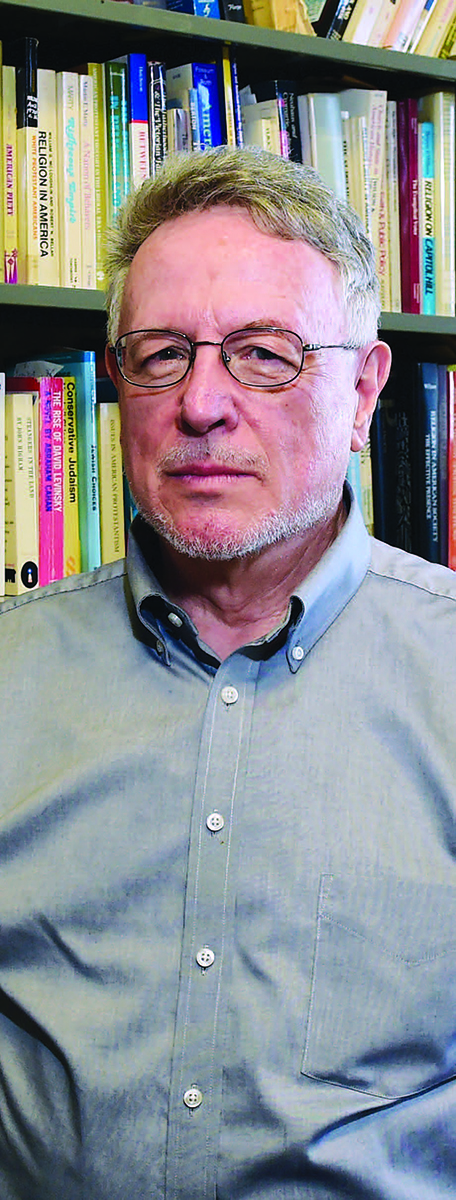
 On Immigration: “The easy part is talking about mercy and compassion and being welcoming. The harder part is figuring out what this means in terms of public policy.”
On Immigration: “The easy part is talking about mercy and compassion and being welcoming. The harder part is figuring out what this means in terms of public policy.”
William Dinges, now in his fourth decade as a professor in the School of Theology and Religious Studies, is especially interested in the relationship of religion and culture. His areas of expertise include the history of religion in America (particularly Catholicism), fundamentalism, and the nexus of religion and social change.
You teach several courses exploring immigration issues. Why?
One could hardly talk about any aspect of the American experience without touching on immigration. Immigrants are clearly an economic asset to our nation, either because they have skills we need, or they are willing to work in jobs others don’t want. The shadow side of this is that immigrants can also be seen as an economic liability. Individuals in some economic sectors feel their jobs are threatened by immigrants who work for lower wages. It’s important to appreciate both sides of this argument. But if you look at the data overall, immigrants have proven to be far more of an economic boon than a negative.
From the standpoint of history, what’s one thing it’s important to remember?
There are striking parallelisms between the situation of Muslims in America today and the historical situation of Catholics. Nowadays, some people say, “If you elect a Muslim, Sharia law’s going to be imposed.” Earlier, anti-Catholic voices warned, “If you elect a Catholic, the Vatican is going to run the country and Catholic morality will be imposed.”
What should be our society’s goals for immigrants?
Our attitude should be one of welcoming, but we need responsible policies that facilitate the adjustments of immigrants to American society. We also need to address legitimate issues relating to excessive pressures on local infrastructures. In one sense, the easy part is talking about mercy and compassion and being welcoming. The harder part is figuring out what this means in terms of public policy.
Much of global migration is being driven by climate change. So, if you think we have immigration problems now, this is only going to get worse. If you read the encyclical Laudato Si’, it’s clear that Pope Francis understands this.
In addition, to the degree that the U.S. is historically implicated in the destabilization of some of these countries in Central and South America, we have obligations — moral, political, and economic — to try to re-stabilize these societies and to help them prosper. This is why foreign aid is absolutely critical. In the long run, it will go much farther than building walls if we want to reduce immigration pressures. I don’t think the border wall we’re expanding will effectively keep people out. Nor should we tolerate state-sponsored child abuse by separating families at the border. This is wrong and morally repugnant.
What’s the best way to respond to anti-immigrant sentiment?
One of the more important things, when interacting with people who hold anti-immigrant views, is to listen to them and try to really hear what they’re saying — which doesn’t necessarily mean agreeing with them. There’s never going to be a resolution that’s going to satisfy everybody, but can we at least agree that children should not be taken away from their parents? To me, that’s a very Catholic response — to try to find some common ground or common good on this complex issue — and act accordingly. Nor, as Catholics, can we afford to be silent on these matters.
— Greg Varner